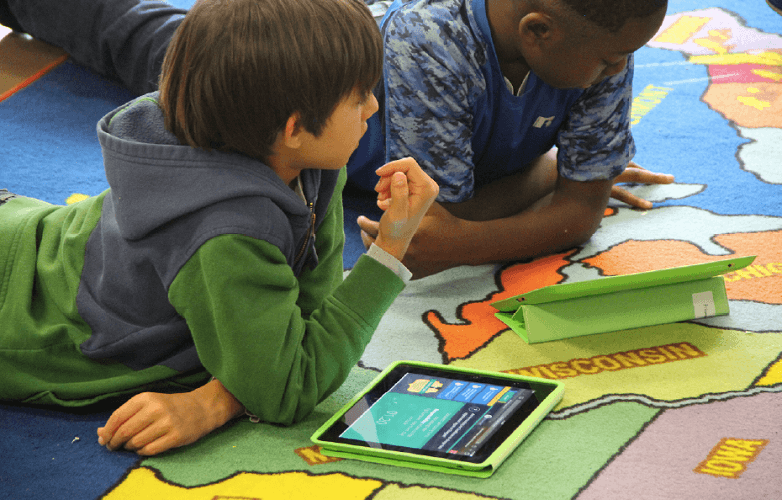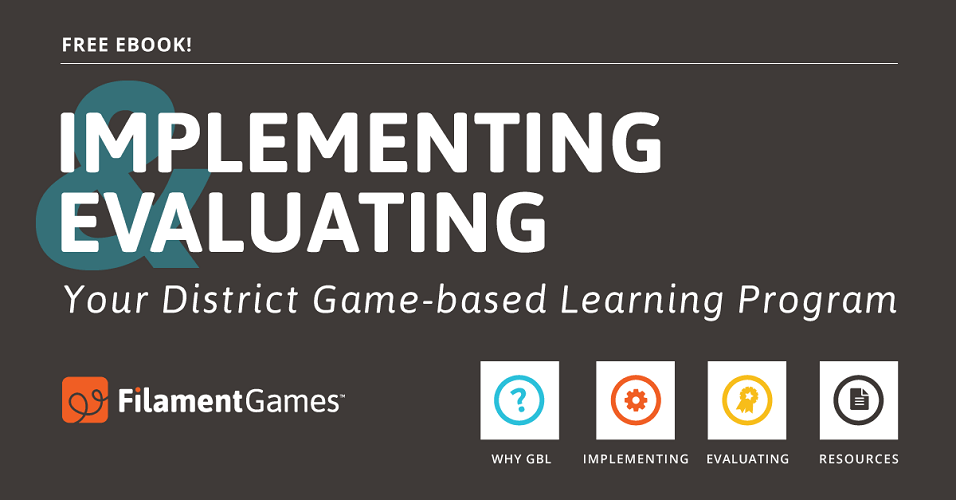WHY TEACHERS MAKE SOME OF THE BEST ENTREPRENEURS
NOTE FROM THE EDITOR
“I’m so smart!” screams Susan during science class.
“Wait, how’d you do that?” another student asks her.
“OK, what level are you on?”
This is the sound of authentic engagement – an elusive, tantalizing goal for any teacher when designing lessons. But why are these students so engaged? In this case, they’re playing video games. Now, it’s fairly obvious to anyone who’s seen a student play a video game that this is a great way to capture students’ interests and pique their curiosities. But are the video games really teaching kids anything useful?
Educators and administrators across the country have used game-based learning to connect with difficult to reach students, present complex concepts, and provide professional development opportunities to educators. Not only do game-based learning programs provide a productive and engaging digital experience for district-wide hardware implementations, they also provide an environment where students can demonstrate a new form of literacy – games literacy.
Why Game-based Learning
When games are used in the classroom, educators noticed that students are no longer afraid to take risks. Instead of worrying about finding the correct answer, students are more willing to explore, try, iterate, and fail as they make their way to a successful outcome. Their familiarity and literacy with games as a medium provides them an accessible, supported environment to try new things. Through this process, students are building 21st-century skills while mastering complex concepts.
“Kids are comfortable with games, but they may not feel comfortable in the classroom. Because of this they’re more inclined to take risks in a game.”
Anne Larson, Digital Learning Manager, Sun Prairie Area School District
eBook: Implementing and Evaluating Your District Game-based Learning Program
To support educators and administrators as they implement a school or district-wide game-based learning program, Filament Games created a new eBook – Implementing and Evaluating Your District Game-based Learning Program. The eBook features practical advice from educators and administrators, planning templates, testimonials, videos, classroom studies, and more.
After reading Implementing and Evaluating Your District Game-based Learning Program administrators will understand:
- Why game-based learning programs are effective
- The key components of a successful game-based learning program
- How to measure the success of a school or district-wide implementation
- How to protect student data privacy
- How to align learning games to curriculum goals and standards
Designed to support an entire administrative team, the eBook includes sections for:
Administrators
Implementing and Evaluating Your District Game-based Learning Program provides worksheets and best practices so that administrators are prepared to evaluate the success of their program. Helpful planning guides and worksheets ensure evaluations are tied to organizational goals. The guide also features tips and insights to ensure teammates are on board and knowledgeable about the program.
Technology Teams
Technology teams are often tasked with providing the appropriate hardware to successfully implement the program while also protecting student data and privacy. Included in the eBook are hardware recommendations, professional insights, and essential questions to ask your game-based learning vendor prior to implementing a district-wide program.
Curriculum Teams
The most beneficial learning games are portals to new experiences instead of worksheets in disguise. Implementing and Evaluating Your District Game-based Learning Program provides curriculum teams with tips for selecting high-quality learning games and aligning them to standards and grade levels.
Educators
To prepare educators for using games in the classroom, the eBook contains best practices for assessing game-based learning in addition to classroom studies from educators across the country.
When I have students come to me and say they went home and played the game again because they wanted to learn more or because it was fun, I feel like I’ve done my job and made smarter kids.”
Dave Ropa, 7th Grade Science Teacher, Spring Harbor Middle School
Implementing a school or district-wide game-based learning program isn’t as difficult as you might think. Download your copy of Implementing and Evaluating Your District Game-based Learning Program and engage and inspire your students and staff through the power of games.



